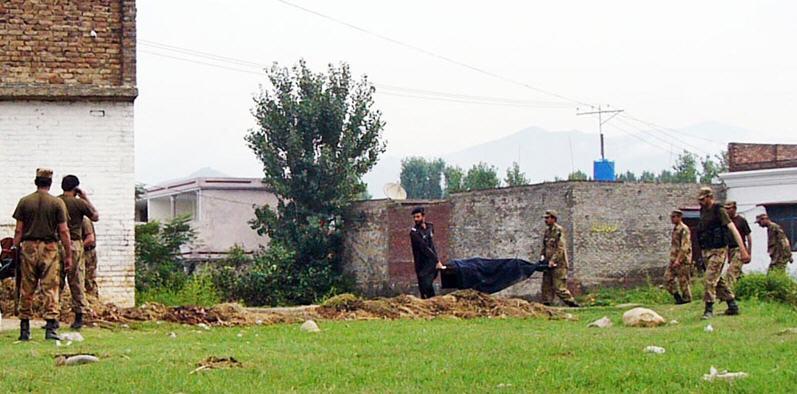Dealing with Pakistan’s extremists
The hawk and the dove
The new prime minister and his army chief profess different approaches to dealing with the Pakistani Taliban
Jun 1st 2013 | LAHORE
WHO knows what Pakistan’s two most powerful men spent three hours talking about when the army chief travelled to Lahore to pay a visit to Nawaz Sharif, the country’s incoming prime minister? But if they discussed schemes for taking on the group known as Tehreek-e-Taliban Pakistan (TTP), they appear not to have agreed on how best to deal with the biggest threat to the country’s domestic security: militant Islamists hellbent on toppling the state.
Mr Sharif has long advocated a soft line. The TTP’s offer of talks with the government should, he said recently, be taken seriously. Why not “talk to the Taliban to make our country peaceful?” he asked. Later Mr Sharif’s officials asked an aged extremist, Sami ul Haq, the head of a madrassa near Peshawar, to act as an envoy.
It is unlikely that Ashfaq Parvez Kayani, the army chief, approves of any of this. Last year he declared that the whole country should join in a “war against extremism and terrorism”. After the general election on May 11th, he congratulated Pakistanis for voting in huge numbers, despite threats from an “insignificant and misguided” TTP.
Diplomats who know the general are convinced this is not just rhetoric. Despite decades of support the army has given to militant groups fighting for what it perceives to be the national interest in Afghanistan and Kashmir, Mr Kayani seems convinced that tough action is now required to bring the Pakistani Taliban to heel.
Last year the army began preparations for military operations in North Waziristan, the most troubled of Pakistan’s seven “tribal agencies” near the Afghan frontier, following the attempted murder by a TTP gunman of a girl, Malala Yousafzai, who openly defied a Taliban edict that school is only for boys. Yet the onslaught never came, perhaps because public revulsion over the crime soon faded.
Although some progress has been made in re-establishing the state’s writ in some agencies, North Waziristan remains lawless, a haven for jihadists from all over the world. The only opposition the militants face are overhead drones operated by America’s CIA. On May 28th one such reportedly killed a number of militants, including Wali-ur-Rehman, the TTP’s second-in-command. The Pakistani authorities once offered a bounty for his arrest or death, so it will be hard for them to criticise America’s drone policy now.
For all General Kayani’s tough talk, Mr Sharif is determined not to be bossed around by his army chief. He will handle the defence and foreign portfolios himself, two areas traditionally seen as the army’s preserve. Some observers believe Mr Sharif’s calls for peace talks are a way to buy time in order to concentrate on fixing a decrepit economy and the country’s dire electricity shortages. Just possibly, however, his overture to the Pakistani Taliban could be part of a cunning plan to lay the ground for a military response, once he has conclusively proved that seeking peace with the Pakistani Taliban is a fool’s errand.
More likely, says Hasan Askari Rizvi, a security analyst, Mr Sharif’s call for talks is a reflection of the country’s muddled thinking about the TTP. Despite its murderous campaigns around the country, the movement is widely regarded as an understandable reaction to the American-led war in Afghanistan. Many members of Mr Sharif’s own party, the Pakistan Muslim League (N), hold this view.
Ejaz Haider, a commentator, believes that formal negotiations would bestow huge prestige on the TTP, while proving the impossibility of giving the group what it wants, namely, an end to the Pakistani state in its current form. Overwhelming counterforce, sooner or later, may be the state’s only remaining option.
From the print edition: Asia











